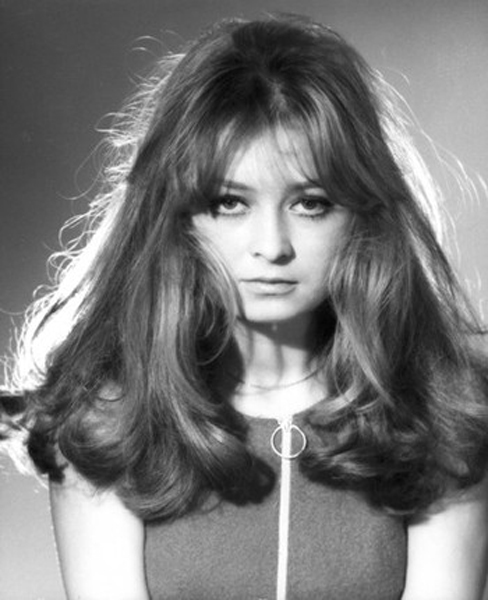Those sunglasses!
The soft focus blends well with the more aggressive patterns of her shirt.
The timeless Soviet look.
Onscreen texture: white tulle.
Everything about this photo works well, but I particularly like the way the bright shade of her dress and multi-coloured scarf accentuate the colours of the natural setting of the background.
The mirror acts as a halo here, perfect.
For more photographs and a biography on Małgorzata Braunek please see culture.pl
Culture.pl is an online magazine promoting Polish Culture abroad, run by the Adam Mickiewicz Institute and funded by the Ministry of Culture and National Heritage of Poland.
























































